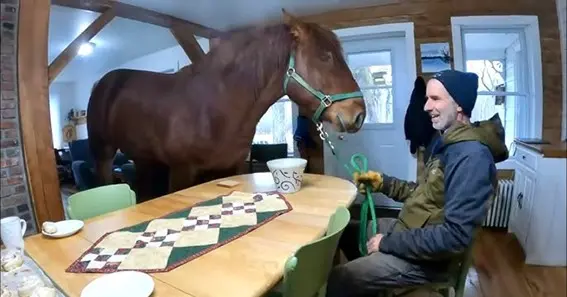When you ask why is horse playing not safe in the kichen, it prompts an important discussion about the risks associated with engaging in horseplay in a kitchen setting. Horseplay, which refers to rough or boisterous behavior, is particularly dangerous in a kitchen due to the presence of sharp tools, hot surfaces, and potentially hazardous equipment. Understanding these risks is essential for maintaining a safe and secure environment in both home and professional kitchens.
Risks of Horse Playing in the Kitchen
Hazardous Equipment and Sharp Objects
Kitchens are filled with knives, scissors, and other sharp instruments that can cause severe injuries if mishandled. Engaging in horseplay increases the likelihood of accidental cuts or punctures, which can lead to infections or worse.
Hot Surfaces and Boiling Liquids
Stoves, ovens, and boiling pots are everyday kitchen hazards. Horseplay can result in spills or accidental contact with these hot surfaces, leading to burns or scalding injuries.
Slippery Floors and Cluttered Workspaces
Kitchens often have wet or greasy floors, which can become even more dangerous during roughhousing. Horseplay might lead to falls or collisions with furniture, causing bruises, fractures, or other injuries.
Distraction from Food Safety
When horseplay takes precedence, attention to food preparation and hygiene can falter. This distraction increases the risk of cross-contamination, foodborne illnesses, and other health hazards.
Compromised Emergency Preparedness
In a chaotic environment caused by horseplay, the ability to respond swiftly to an emergency—such as a fire or severe injury—is diminished. A focused, calm approach is critical in kitchen emergencies.
Frequently Asked Questions (FAQ)
1. Why is horse playing not safe in the kichen?
Horseplay in the kitchen is unsafe because it increases the risk of accidents involving sharp objects, hot surfaces, and slippery floors, which can lead to severe injuries and compromised food safety.
2. What are the common injuries associated with horseplay in the kitchen?
Common injuries include cuts, burns, falls, and bruises, as well as the potential for more serious accidents like deep lacerations or fractures resulting from collisions with equipment or furniture.
3. How can kitchens be made safer to prevent horseplay accidents?
Kitchens can be made safer by maintaining a clean and organized workspace, enforcing strict safety rules, providing proper training on the use of kitchen tools, and discouraging rough behavior around hazardous areas.
4. Are there guidelines for preventing horseplay in professional kitchens?
Yes, many professional kitchens have strict safety protocols and codes of conduct that prohibit horseplay to ensure the safety of staff and maintain a focused work environment.
5. What steps should be taken if an accident occurs due to horseplay in the kitchen?
In the event of an accident, immediate first aid should be administered, and emergency services should be contacted if necessary. Additionally, the incident should be documented, and safety protocols reviewed to prevent future occurrences.
By examining why is horse playing not safe in the kichen, we uncover that the risks extend far beyond mere mischief. The presence of dangerous equipment, hot surfaces, and slippery conditions all contribute to an environment where horseplay can lead to serious injuries. Maintaining a disciplined and focused approach in the kitchen is essential for ensuring the safety of everyone involved.










